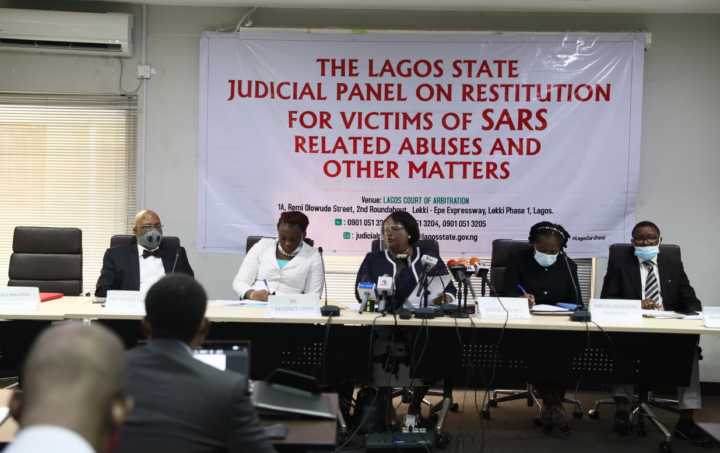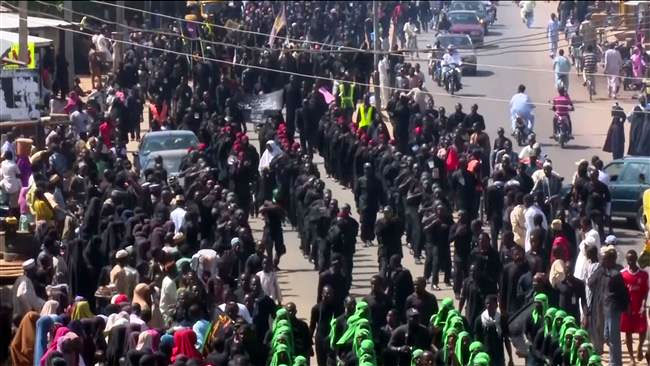Nigeria: Time for the grand design (3)
BY WEALTH DICKSON OMINABO
Democracy is often regarded as a utilitarian tool, a platform through which basic human virtues and values can be expressed and attained. Values such as justice, happiness, peace and freedom are the defining norms of a democratic system. This is why democracy is conceived to be a set of interrelated norms, cultures and values. It is the attainment of these values by citizens of a state that makes democracy meaningful.
Democracy is not an empty ground, it is a forest where citizens live with daily expectations; governments are instituted on the premises of limitless promises and assurances. The fulfilment of the promises of peace, security, unity and progress is what makes democracy an effective vehicle for nation-building.
Democratic promises are not promises that should be abandoned, betrayed or denied, they are state responsibilities that leaders should be committed to because it is the fulfilment of these promises that guarantee legitimacy and build trust between citizens and government. In a democratic setting, sovereignty is built through the legitimacy of a state while trust is the glue that holds legitimacy and sovereignty.
Advertisement
Today many African democracies are battling legitimacy challenges, owing to trust deficit between government and its citizens. Democracy across the continent has not been able to serve as a buffer to human miseries nor has it been able to help unite the peoples of the country, this is because of the existing gaps between the promises and daily realities of citizens.
Peace and security are regarded as some of the greatest fortunes of democracy, unfortunately, many African nations are immersed in political conflicts and crises, casting shadows of doubt on the efficacy of democracy in the continent.
The challenge of democracy in Africa and the waning state of the continent’s unity and peace and security architecture was the major talking point at the Goodluck Jonathan Foundation Dialogue organised in Abuja recently.
Advertisement
The theme of the dialogue, ‘Democracy Unity of the State’, captured the mood of the continent amid the recent trend of political coups and general issues of democratic recession. Speakers and participants to dialogue were drawn from within and outside the continent to share their experiences on democratic apostasy on the continent, and what holds for the African continent in the near future.
Participants contextualised the challenges of democracy and the fragility of statehood in Africa from different lenses, many x-rayed the issues from their lived experiences and proposed solutions from the same lens.
Former Nigerian president and chairman of the Goodluck Jonathan Foundation, Goodluck Ebele Jonathan, set the tone of the dialogue. As he highlighted the objective of the dialogue as well as the place of democracy in nation-building.
This dialogue he said, “captures the essence of democracy, which drives its steam from productive civic engagements. The event of today, therefore, creates an open forum for brothers and sisters and friends alike to discuss our common challenges and share experience on how to surmount them”.
Advertisement
On the challenge of managing cultural diversity in Africa, Jonathan said: “we need to harness our diversities and differences and translate them to strength for a more peaceful and prosperous future. Our diversity is often misconstrued to be the source of our challenges, but I feel if properly harnessed, it will be the source of our greatness. One good way to make progress in this regard is to strengthen government institutions to improve integration, equity and social inclusion in our various nations”.
The keynote speaker, Abdoulaye Bathily in his exegesis on Africa’s contemporary challenges and the crisis of democracy and nation-building observed that the current crisis of state and nation-building in Africa was a long-standing historical phenomenon.
He said “The national flag and the national anthem alone do not give us legitimacy to a state or unite its components in a sustainable manner. In view of what is happening today in the continent, we can say that we have not been able to create a real capable state which will cater for the needs of the people, which will attend to the aspirations of the population as a whole. We have not created a state for the citizens”.
“The civil wars, what we are seeing now in the Sahel in the whole of Africa, in southern Africa shows clearly in terms of diversity management which we see by enlarged is ethnic politics against the state of citizens. citizens who must be considered as individuals of equal opportunity, equal treatment at all levels.”
Advertisement
Bathily related the political crises in Africa to poor leadership and bad governance. He argues that to triumph the current crises in the region, Africa needs a new paradigm of democratic leadership. One that will be responsible and people-centred.
“The current crisis of the state is the reflection of the crisis of leadership on the African continent. We need quality leadership on the African continent, visionary leadership armed with a new code of governance, new ethics, compassionate leadership, a learned leadership.
Advertisement
“Leadership is not somebody who knows everything, who pretends to know everything, or to be able to know everything, but to learn from others.”
Suggesting the kind of leader Africa needs at this point in time, Bathily recommends a “humble leadership who would know that when in office, they do not represent their ethnic groups, but the whole nation in diversity who need to be served honestly in a dedicated manner. Humility is a quality of leadership at all levels and today when you look at the geography of the crisis of the continent, we can safely say that it is far from that leadership we want.”
Advertisement
To achieve unity in the continent, Bathily said “we need to build a new state from the state inherited from the colonial system. A state that will accommodate all the citizens irrespective of their ethnic, cultural or religious background. A state that will put merit at the centre of promotion”.
Ominabo is the communications officer of the Goodluck Jonathan Foundation
Advertisement
Views expressed by contributors are strictly personal and not of TheCable.
Add a comment






